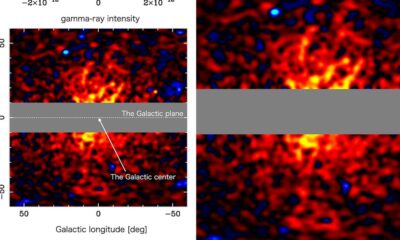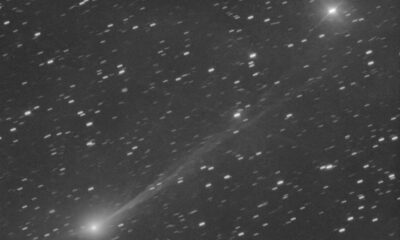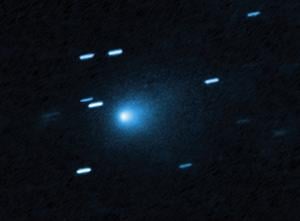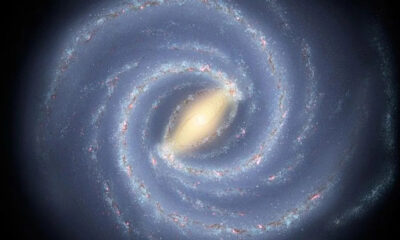Science
Japanese Researchers Claim Breakthrough in Dark Matter Detection
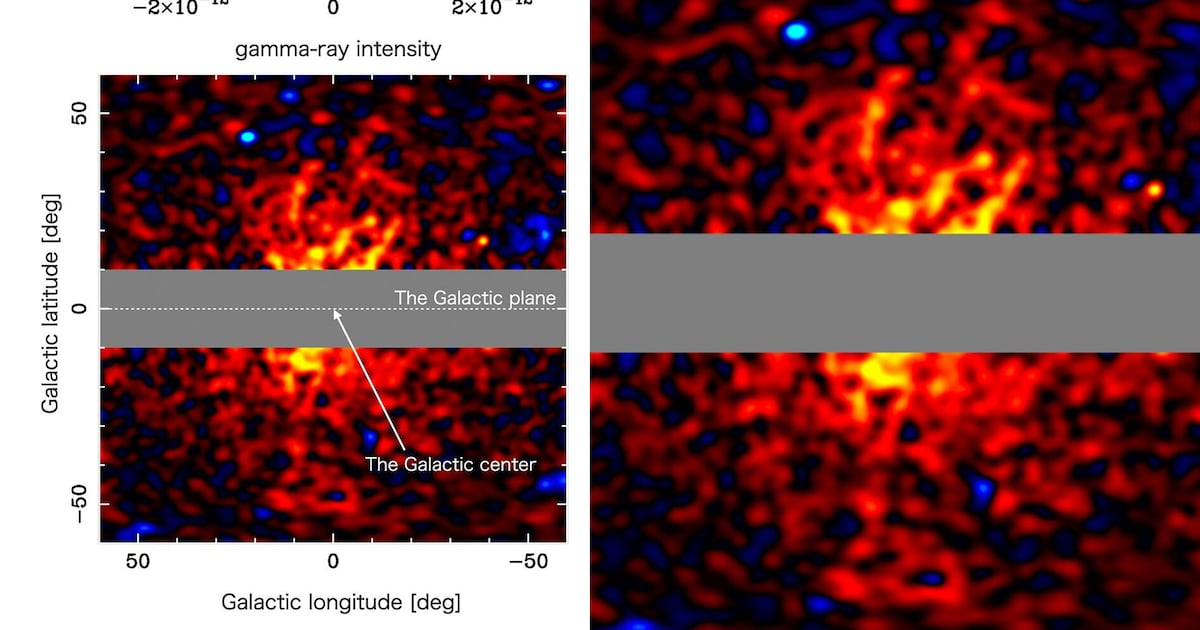
Researchers at the University of Tokyo have announced a potential breakthrough in the quest to understand dark matter, a substance that has eluded direct study since its concept was introduced in the 1930s. Utilizing advanced data from NASA’s Fermi Gamma-ray Space Telescope, the team believes they have detected gamma rays that may signal the presence of dark matter.
Dark matter, first identified by Swiss astronomer Fritz Zwicky, is often referred to as the “invisible glue that holds the universe together.” This enigmatic substance is thought to comprise the majority of matter in the universe, yet it remains undetectable by conventional means, as it neither absorbs, reflects, nor emits light. Scientists have inferred its existence through its gravitational effects on visible matter, such as galaxies.
Leading the research, astronomer and astrophysicist Tomonori Totani focused on areas with high concentrations of dark matter, particularly at the centre of the Milky Way. The team dedicated years to searching for specific gamma rays that could arise from the annihilation of dark matter particles. Their latest findings suggest they have identified gamma rays with an energy of 20 gigaelectronvolts, forming a halo-like structure toward the Milky Way’s core.
“We detected gamma rays with a photon energy of 20 gigaelectronvolts, extending in a halo-like structure,” Totani stated in a press release. “The gamma-ray emission component closely matches the shape expected from the dark matter halo.” This detection is significant, as it cannot be easily attributed to known astronomical phenomena.
The implications of these findings are profound. Totani remarked, “If this is correct, it would mark the first time humanity has ‘seen’ dark matter.” He posits that this new particle is not accounted for in the current standard model of particle physics, indicating a significant advancement in both astronomy and physics.
The study has been published in the Journal of Cosmology and Astroparticle Physics, but the findings must undergo validation through independent analysis by other researchers. Yonatan Kahn, an assistant professor of physics at the University of Toronto, expressed cautious optimism regarding the research. He noted that while the study seeks to illustrate the interaction of dark matter through gravitational effects, it remains essential to verify its consistency with other observational efforts.
“What this paper is purporting to show is they saw signatures of dark matter particles that were annihilating to other particles that we can observe,” Kahn explained. He raised concerns about the consistency of the data with previous searches that examined similar regions of the galaxy but did not yield conclusive results.
Despite the need for further verification, the research represents a pivotal moment in the long-standing exploration of dark matter. As scientists continue to unravel the mysteries of the cosmos, this new evidence could reshape our understanding of the universe’s fundamental components and their interactions.
-

 Politics3 weeks ago
Politics3 weeks agoSecwepemc First Nation Seeks Aboriginal Title Over Kamloops Area
-

 World4 months ago
World4 months agoScientists Unearth Ancient Antarctic Ice to Unlock Climate Secrets
-

 Entertainment5 months ago
Entertainment5 months agoTrump and McCormick to Announce $70 Billion Energy Investments
-

 Lifestyle4 months ago
Lifestyle4 months agoTransLink Launches Food Truck Program to Boost Revenue in Vancouver
-

 Science5 months ago
Science5 months agoFour Astronauts Return to Earth After International Space Station Mission
-

 Technology3 months ago
Technology3 months agoApple Notes Enhances Functionality with Markdown Support in macOS 26
-

 Top Stories2 months ago
Top Stories2 months agoUrgent Update: Fatal Crash on Highway 99 Claims Life of Pitt Meadows Man
-

 Lifestyle3 months ago
Lifestyle3 months agoManitoba’s Burger Champion Shines Again Amid Dining Innovations
-

 Politics4 months ago
Politics4 months agoUkrainian Tennis Star Elina Svitolina Faces Death Threats Online
-

 Sports5 months ago
Sports5 months agoSearch Underway for Missing Hunter Amid Hokkaido Bear Emergency
-

 Politics4 months ago
Politics4 months agoCarney Engages First Nations Leaders at Development Law Summit
-

 Technology5 months ago
Technology5 months agoFrosthaven Launches Early Access on July 31, 2025

